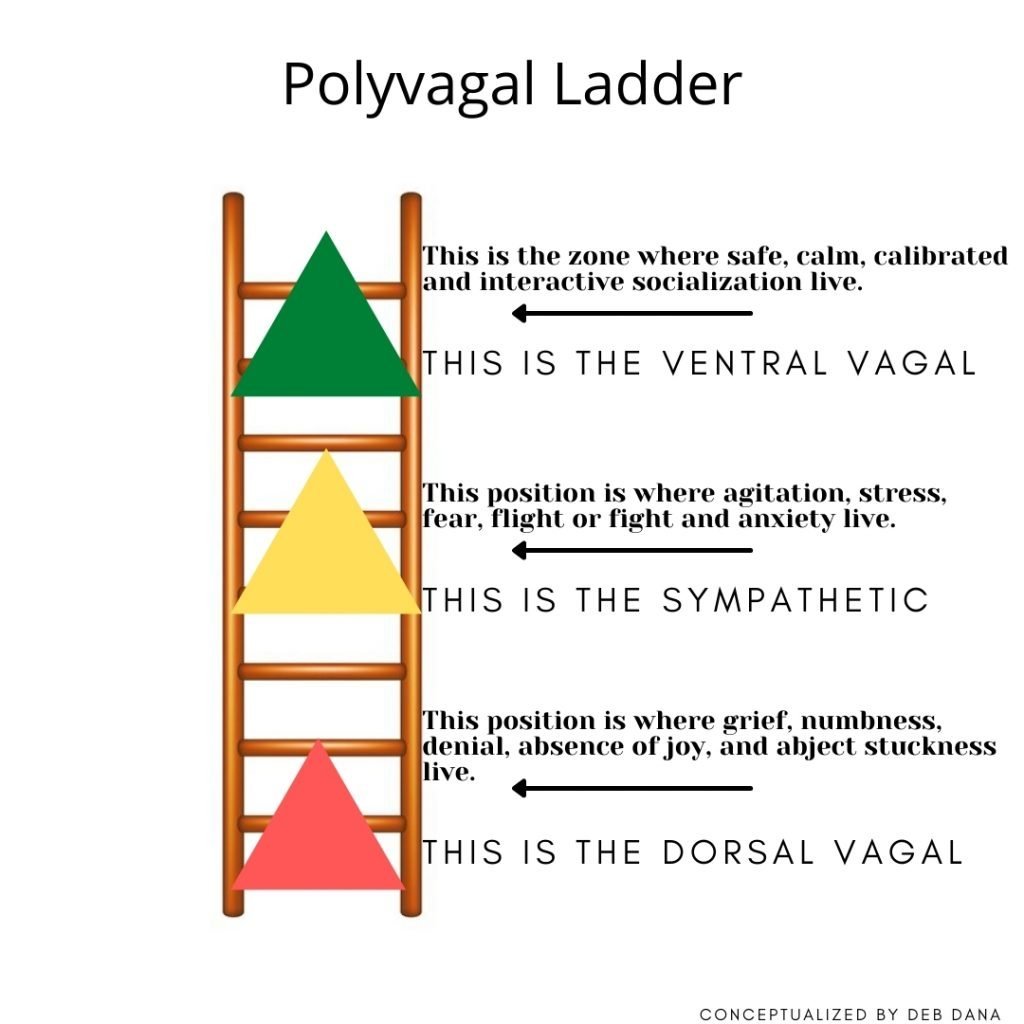Unveiling the Intricacies of the Stress Response: A Journey into the Polyvagal System
Here at the Margaret River Surfing Academy, we try to understand the pressures of life and are so interested in our body's reactions and processes related to stress and stressful situations. Knowledge is powerful, and educating us on our mindful practices can help give us a leading edge. In our fast-paced world, stress has become an almost ubiquitous companion. From tight deadlines to personal challenges, our bodies and minds often navigate the complex stress landscape. Understanding the stress response and the role of the polyvagal system can shed light on how our bodies react to stressors and provide valuable insights into managing and mitigating its effects.
The Stress Response:
The stress response is a fundamental survival mechanism, often called the "fight or flight" response. When faced with a perceived threat, the body activates a cascade of physiological and psychological reactions designed to prepare for immediate action. This response is orchestrated by the autonomic nervous system (ANS), which is divided into two main branches: the sympathetic nervous system (SNS) and the parasympathetic nervous system (PNS).
Sympathetic Nervous System (SNS):
The SNS is like the body's gas pedal, activating the release of stress hormones such as adrenaline and cortisol. Heart rate increases, breathing becomes rapid, and energy is redirected to essential functions, preparing the individual to confront or escape a potential danger.
Parasympathetic Nervous System (PNS):
In contrast, the PNS acts as the brake, promoting a state of relaxation and recovery after the stressor has passed. It counteracts the SNS, slowing heart rate, promoting digestion, and fostering a sense of calm.
Enter the Polyvagal System:
Dr. Stephen Porges, a prominent neuroscientist, introduced the concept of the polyvagal theory, which expands our understanding of the autonomic nervous system. Unlike the traditional view that the ANS has two branches, the polyvagal theory introduces a third component: the social engagement system.
Ventral Vagal Complex (VVC): This component of the polyvagal system is associated with feelings of safety and connection. When activated, it allows us to engage socially, fostering positive interactions and reducing stress.
Sympathetic Nervous System (SNS): The traditional "fight or flight" response, activated in situations of threat or danger.
Dorsal Vagal Complex (DVC): The DVC represents the oldest aspect of the parasympathetic nervous system. When activated, it promotes a freeze response, akin to playing dead, as seen in some animals when confronted with overwhelming danger.
Understanding the interplay between these components offers a nuanced perspective on stress responses. For instance, chronic stress may lead to dysregulation of the polyvagal system, resulting in difficulties in social engagement and prolonged states of fight, flight, or freeze.
Here are some practical implications and coping strategies:
Mindfulness and Relaxation Techniques: Practices such as deep breathing, meditation, and progressive muscle relaxation can activate the PNS, promoting a sense of calm and relaxation.
Social Connection: Strengthening the ventral vagal complex through positive social interactions and relationships is crucial for building resilience against stress.
Self-awareness: Recognizing the triggers and early signs of stress allows individuals to implement proactive strategies, preventing the escalation of the stress response.
Physical Exercise: Regular physical activity not only helps dissipate the energy built up by the sympathetic nervous system but also enhances the overall functioning of the autonomic nervous system.
To gain valuable insights into the mind-body connection by delving into the intricacies of the stress response and the polyvagal system. Recognising the dynamic interplay between the sympathetic and parasympathetic systems and the social engagement component empowers individuals to navigate stress more effectively. As we continue to unravel the mysteries of our nervous system, we uncover new avenues for promoting well-being and resilience in the face of life's challenges.

